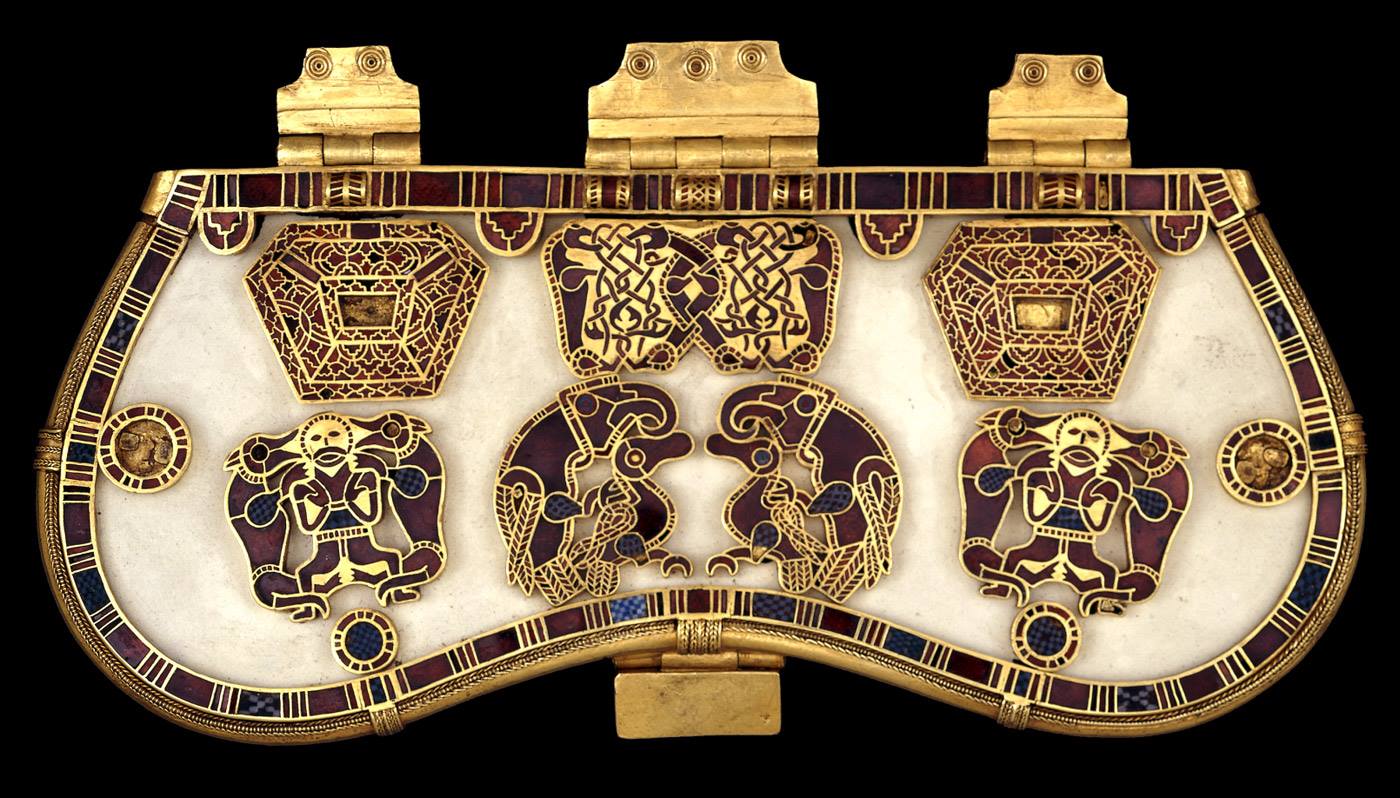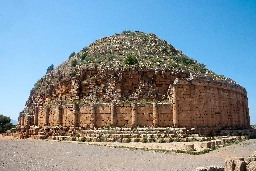Cripple. History Major. Irritable and in constant pain. Vaguely Left-Wing.
- 5.82K Posts
- 9.55K Comments

 4·9 hours ago
4·9 hours ago“Bruva, I am pinned here!”

 1·9 hours ago
1·9 hours agoHey man, if you want to argue that British imperialism wiped out the power of local elites, and that was a good thing (or at least better than local elites continuing), I’m not here to get in your way. I’m just in opposition to the technological side of the argument.
 5·11 hours ago
5·11 hours agoI mean, there were plenty of apologists for the Nazis when they were quickly rising, or those content to dismiss them as harmless rabblerousers, and plenty of antivaxxers before the modern day.
We just tend to forget those who were on the wrong side of history.
Prefect Pilate, get the cross. We have another cult leader stirring up trouble in Iudea.
Yes, to keep in contact with 6 people.

 4·13 hours ago
4·13 hours agoAhmad Shah Massoud tried to warn us
Anytime! It always makes my day when I can help point people to engaging resources on history!
To me, the original trilogy is… ok.
The original trilogy has a very mythological feel that none of the other works have ever managed to fully capture (and, honestly, that feeling was on the wane even as early as Episode 6). I can name the modern works, outside of Star Wars, that have that atmosphere on one hand. It’s a very delicate balance to get that atmosphere, and I think even the OT only succeeded at it by happy accident.
Still, Andor felt so fundamental, quintessential Star Wars.
I agree entirely. Can’t wait to see Season 2!
Exactly! Any other faction that wins and takes over the galaxy is still running a dystopia. The Orks, however, would be ruling over a utopia where everyone is happy (on account of being Orks and thrilled to fight one another). The Orks deserve to win from a utilitarian standpoint of maximizing happiness!
Honestly only ranks below the original trilogy for me. It’s really fantastic on all levels.
Um, but… isn’t this the guy who murdered several guards and robbed star wars fort knox though.
What are you talking about? He’s just a tourist!
I really gotta set some time aside and get into history more. These memes seem like 🔥 and I have no idea what they’re talking about.
I usually try to include explanations or links in the comments!
If anyone has reading or podcast recommendations for someone starting out, I’m all ears.
I’m not much of a podcast person, but I can give you a scattershot list of various non-specialist books!
-
Caesar, Life of a Colossus on the the main man, Julius Caesar! Well-written and detailed, putting into perspective the political environment Caesar existed and interacted in through the course of his life.
-
Genghis Khan and the Making of the Modern World may challenge some of your preconceptions about Genghis and the Mongol Empire (though at times it veers into a touch too apologetic) while inspiring interest in just how a minor tribal leader from a backwoods nomad clan managed to create a vast and surprisingly loyal empire in a handful of decades.
-
Ataturk: The Rebirth of a Nation is an excellent resource on the birth of the Turkish Republic and the life of its founder, a man both ruthless and idealistic. Very gripping read.
-
The Time Traveler’s Guide to Medieval England is a very light and fun book that nonetheless is very much about real historical details, backing its claims with sources while giving a ‘ground eye’ view of everyday medieval life and law.
If you’re looking for something heavier or more specific, but still not inaccessible to beginners, I might recommend:
- Imperial Ideology and Provincial Loyalty in the Roman Empire - despite the specific title, the book is very friendly to those without a strong background in Roman history. It takes time to explain common Roman institutions before elaborating on their relation to local cultures, rather than assuming that the reader already understands such things.
-

 17·15 hours ago
17·15 hours agoStories about him are mixed. My interpretation is that he was immensely competent and interested in the orderly functioning of the Roman state, but in the second half of his Emperorship, spent most of his time weeding out conspiracies against his life (real or imagined, depending on which sources you trust) and trying to avoid doing the job of being Emperor (such as during his prolonged stay at his private island where literally no one could contact him).

 1·15 hours ago
1·15 hours agoTamerlane is… not really what I would point to for an average history of India. Don’t forget that the Mughal Empire was more powerful and prosperous than Europe, and included both Hindus and Muslims in the echelons of power. The only real improvement in the process of conquest is that the Brits were no longer interested in slavery by the time they took a keen interest in India in the 19th century.
The Brits brought certain technologies and institutions which are beneficial, that much is true. But medicine, sanitation, rule of law, and ‘basic technology’? Not particularly. Modern Western organizational techniques, honestly, was probably the most beneficial to India.
British medicine was only marginally better than the rest of the world until the late 19th century - and at that point, as uncolonized countries like Japan showed quite well - “Sent a few doctors for degrees at Western medical universities” was a much cheaper and more profitable avenue than getting one’s own damn country taken over. Sanitation, likewise, was not meaningfully improved even in Britain itself until the 1890s, and British efforts to improve sanitation in India were even more lackluster. Rule of law is arguable. Basic technology is very vague, but I struggle to think of anything ‘basic’ that the Brits actually introduced to India en masse.
Don’t confuse the worldwide advance of civilization with a single beneficiary. If India had not been colonized, it is extremely likely that they would have received ‘medicine, sanitation, rule of law, and basic technology’ by the same means that other non-colonized countries did. There’s no stopping modernity.
We have a lot of hate for colonialism because the ones who lost were the rich and powerful, my family were high caste, and I can tell you they were mostly entitled monsters and the world is better off with them losing power.
I agree with this, don’t get me wrong - people often taking “anti-imperialism” to mean “pro-local elites”. But the reason that many successful historical empires are successful is because “Shitty local elites” vs. “Shitty distant elites” don’t generally inspire strong feelings of resistance in the mass of the common people. And Britain was probably, on the whole, not particularly worse than most local elites.
But that doesn’t mean that colonization brought modernity to India. Rather the opposite - colonization was a step ahead of modernity spreading out from the scientific and material explosion of the industrial revolution, and so claimed credit for its arrival (and monopolized its local implementations). Like a sailor with the wind at his back claiming that he is the one who brought the coming storm, and not the other way around.
I know a good shortcut, follow me

 25·15 hours ago
25·15 hours agoExplanation: Tiberius, the stepson of the first Roman Emperor Augustus, was at the bottom of the list for “Who Augustus wanted to succeed him.”
Unfortunately for both of them, Tiberius was still on that list, so when everyone else had died of various causes, Tiberius was plucked from the bench as the backup heir. He didn’t really want the job - in fact, he was quite insistent on not wanting the job - but there’s no arguing with an all-powerful autocrat who’s also technically your dad.
Tiberius spent the first ~10 years of his rule being competent but miserable, with an especial eye towards the financial stability of the Empire, and the next ~10 years being an irritable, isolated paranoiac (and miserable). Despite being the most powerful man in the world, he was known as tristissimus hominum - ‘the gloomiest of men’. He constantly complained about nearly everything about the job - from the lethargy of Senators to the bootlicking of up-and-coming politicians.
Poor fellow probably wanted a quiet life of luxury, and instead had to deal with cutthroat Roman politics 'til the day he died.
https://en.wikipedia.org/wiki/Elgin_Marbles
From 1801 to 1812, Elgin’s agents removed about half the surviving Parthenon sculptures, as well as sculptures from the Erechtheion, the Temple of Athena Nike and the Propylaia, sending them to Britain in efforts to establish a private museum. Elgin stated he removed the sculptures with permission of the Ottoman officials who exercised authority in Athens at the time.[4] The legality of Elgin’s actions has been disputed.[5]
Their presence in the British Museum is the subject of longstanding international controversy. In Britain, the acquisition of the collection was supported by some,[6] while others, such as Lord Byron, likened Elgin’s actions to vandalism or looting.[7] A UK parliamentary inquiry in 1816 concluded that Elgin had acquired the marbles legally.[8] Elgin sold them to the British government in that year, after which they passed into the trusteeship of the British Museum. In 1983, the Greek government formally asked the UK government to return them to Greece, and listed the dispute with UNESCO. The UK government and British Museum declined UNESCO’s offer of mediation. In 2021, UNESCO called upon the UK government to resolve the issue at the intergovernmental level.[9]
Bullshit, the Orks are working towards increasing average happiness in the galaxy!
Moderates
















Honestly, the attitude in this place is contagious!